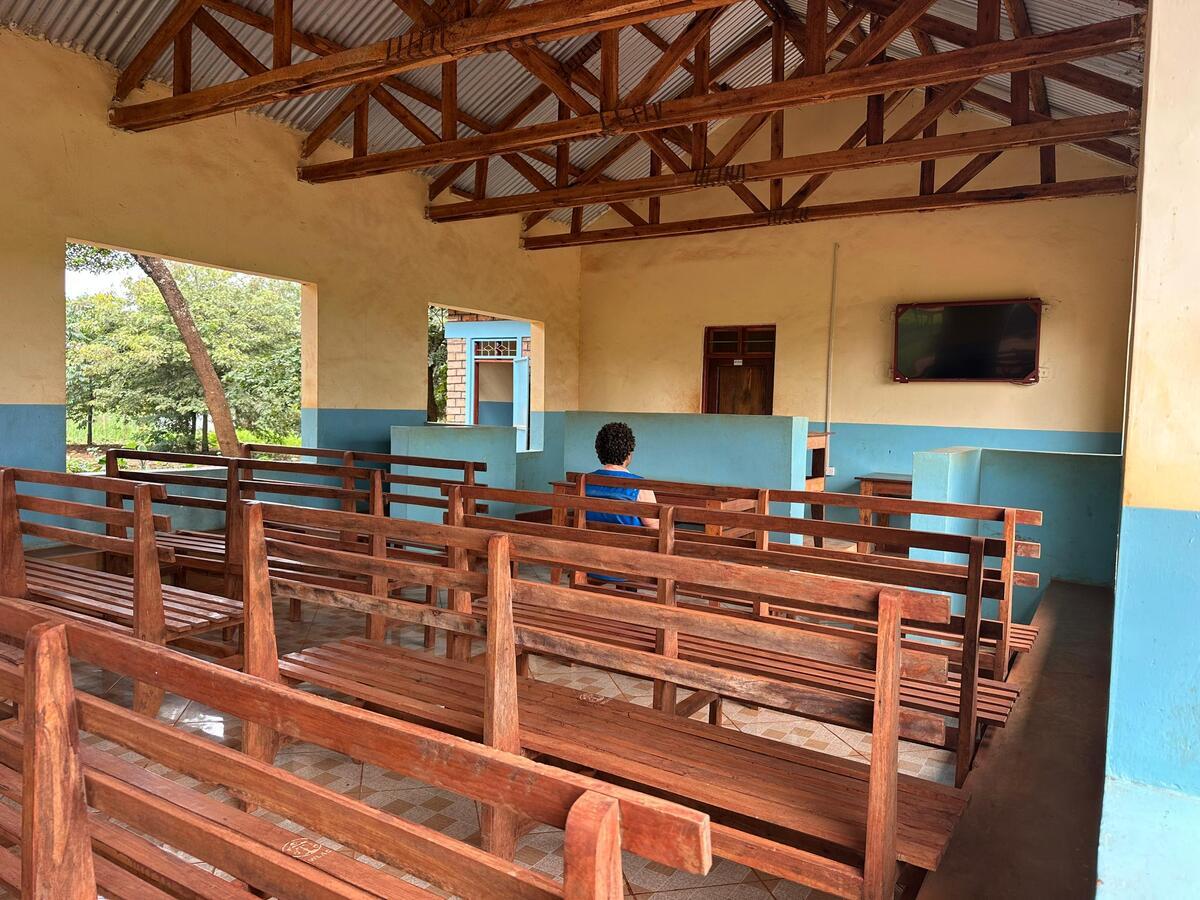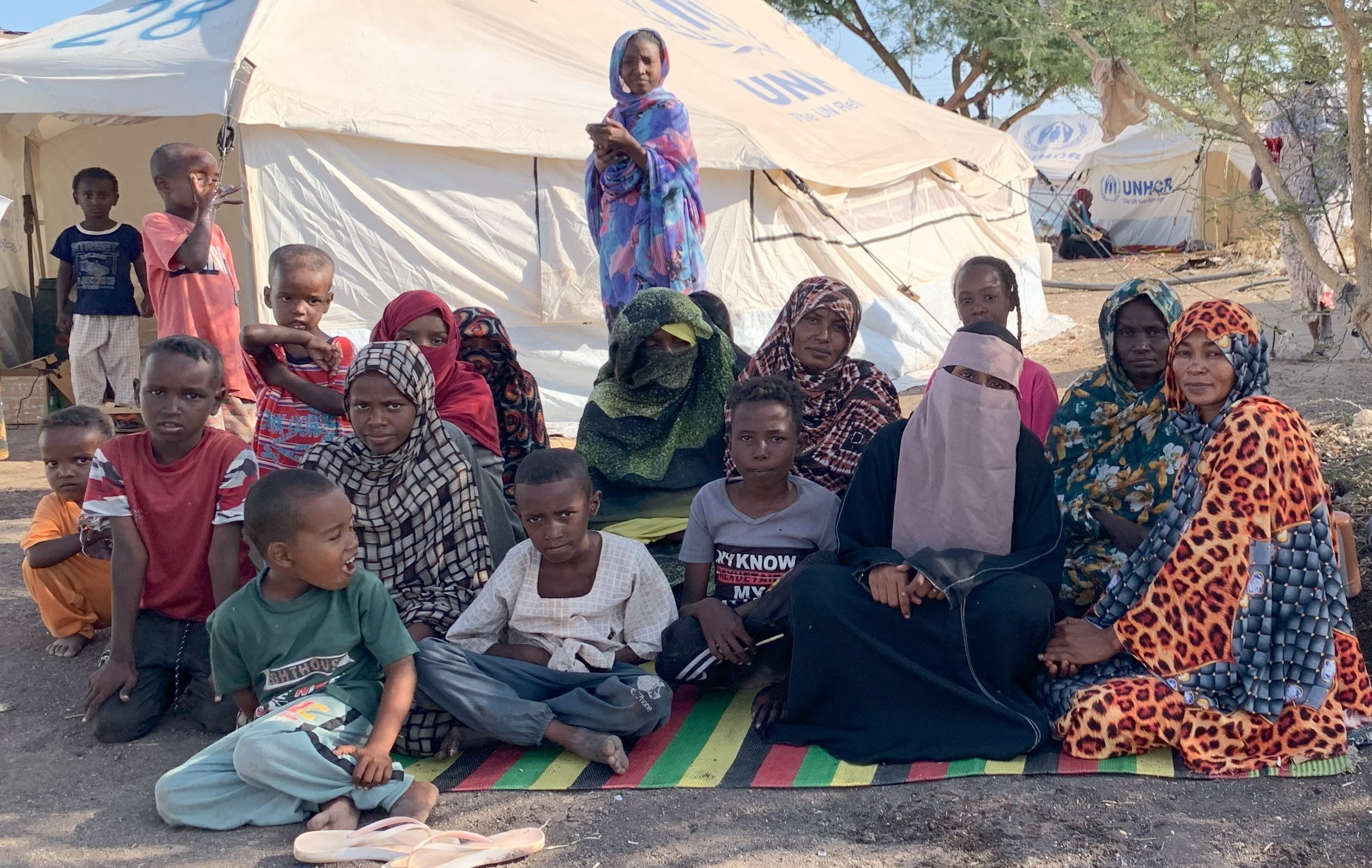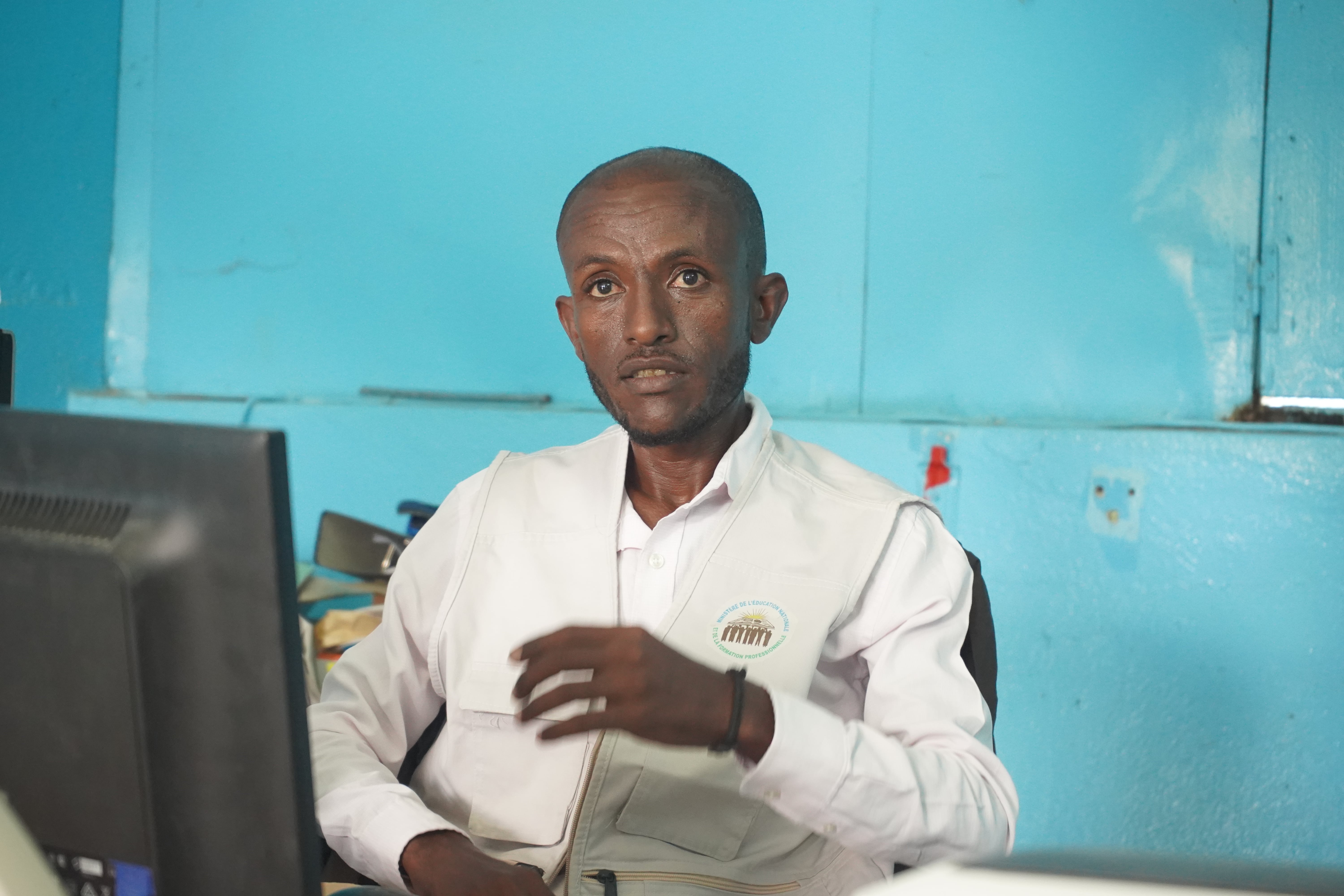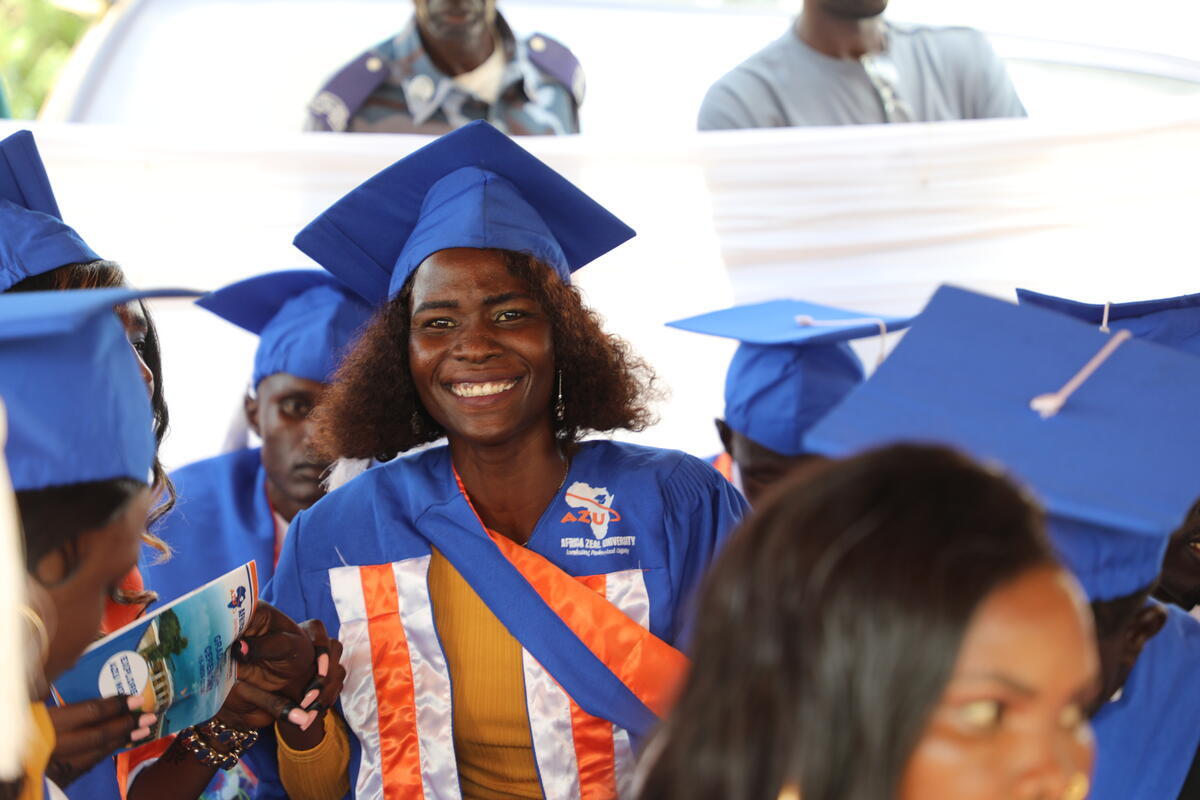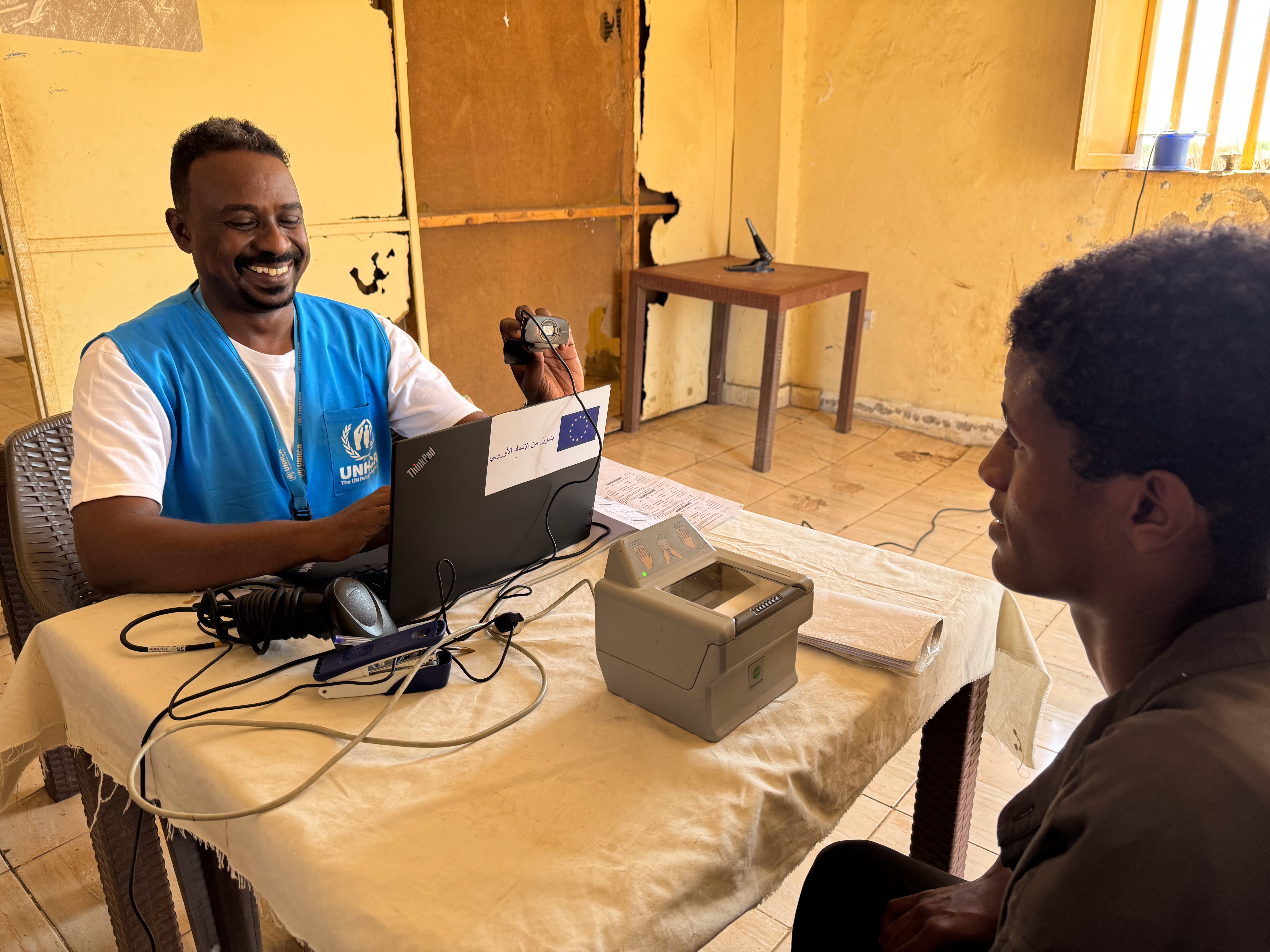Refugee mother in Tanzania uses tragic experience of contracting HIV/AIDS to protect others
Refugee mother in Tanzania uses tragic experience of contracting HIV/AIDS to protect others

Nyota, 37, a refugee mother living with HIV/AIDS is educating her community on how to protect themselves from the disease.
Nyota Bahati* (37) a single mother and refugee living in Nyarugusu camp in Tanzania after fleeing violence in her home country, the Democratic Republic of Congo (DR Congo), remembers the night that completely changed her life.
“My husband was killed that night; the rest of the family were taken to a forest. Then I was grabbed by more than five men and raped. My youngest child was only one year old, I was still breastfeeding him. I woke up the next day in pain hearing my children crying, and then one man offered to take us far from there to save our lives. I was in pain,” she recalls.
Nyota reached the Tanzania border after three days with only her two children. She left her parents back in DR Congo and does not know to this day if they survived the violence. Tragically, she learned in Tanzania that she had contracted HIV/AIDS, a disease that she believes she contracted during the rape incident. Her youngest child also suffers the disease. The rest of the children, including four more that she had while living at the camp, are negative.
With support from the Government of Tanzania, Nyota is receiving antiretroviral therapy and other related support, such as psychosocial support offered at the camp by the UNHCR, the UN Refugee Agency’s partner the Tanzania Red Cross Society (TRCS), nutritious food by the World Food Programme (WFP) as well as the World Diabetes Fund (WDF) and other essential items by UNHCR and its partners.
“Without this support, all my children could have been HIV positive like my second child. I had no knowledge of how to protect myself and my children,” she explains, “However, I got the knowledge on HIV/AIDS through different programs from UNHCR, TRCS, MTI [Medical Teams International] and community health workers.”
Nyota helps her community in the camp by educating them on HIV/AIDS and other non-communicable diseases.
“My community still thinks that being HIV positive is the end of life, sometimes they call me a walking dead! I used to cry and wanted to end my life but the psychosocial support we are getting helps me to be strong and to teach others. I am now able to stand at the mass areas and educate them about HIV. Like at the water points some women used not to get closer to me thinking that they would get HIV too,” she adds.
Nyota’s neighbor and friend, Angelina Markus (49) proudly shares how she has been a hero to their community.
“To our community, Nyota is a star, she takes good care of her children, and she is a friend to everyone. She is not hiding her status. Because of her, our neighborhood is educated as we are getting information and updates on HIV/AIDS easily and we share information with others too.”
Apart from offering counseling and psychosocial support to all the refugee community, prevention of Mother to Child Transmission (PMTCT) of HIV is among other programs in the refugee camps.
“Through this program, pregnant women are taken through HIV counseling and testing during Antenatal Care (ANC), and those who are found positive are started on ART in addition to the other routine ANC services. This prevents the unborn baby from acquiring HIV from the HIV-positive mother,” said Dr. Mohamed Abbas, TRCS Health Coordinator.
UNHCR and its partners’ health response is possible thanks to the generous support of our steadfast donors like the WDF. Nyarugusu camp had 10 health posts providing life-saving services to both refugee and host communities. However due to shortage of funds, 5 health posts have been closed. This affects health services provided to refugees in need like Nyota.
As of 31 October 2023, UNHCR had received only 33 per cent of the resources needed in Tanzania for this year. UNHCR appeals for sustained donor funding to support Tanzania's refugee response.
*Name changed for protection reasons.



